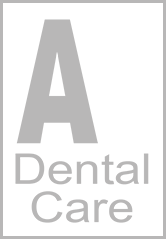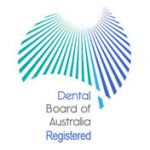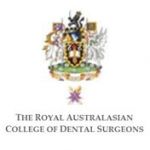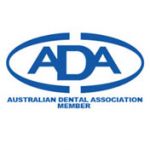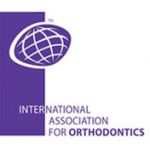Do you experience severe headaches, jaw or neck pain on a regular basis?
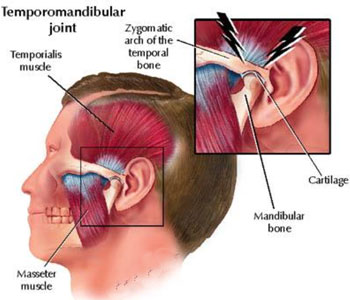
Temporomandibular Joint Disorder (TMJ) syndrome is an umbrella term covering acute or chronic inflammation of the temporomandibular joint, which connects the mandible to the skull. Misalignment of the jaw, facial and cranial structure can cause TMJ Disorders resulting in tension in all areas of the cranium, neck, shoulders and spine. If the jaw is not properly aligned, it can trigger severe headaches, tinnitus, pressure behind the eyes and vertigo (dizziness). Patients who grind teeth during their sleep will feel further pain and discomfort. Symptoms often involve more than one of the numerous TMJ components: muscles, nerves, tendons, ligaments, bones, connective tissue, and the teeth. Ear pain associated with the swelling of proximal tissue can also be a symptom.
Typically, symptoms of TMJ syndrome include:
- pain or tenderness in the jaw
- aching pain in the ear
- difficulty chewing or discomfort while chewing
- aching facial pain
- locking of the joint, making it difficult to open or close the mouth
- headache and/or migraines
- uncomfortable bite
- an uneven bite, because one or more teeth are making premature contact
- dizziness
TMJ disorders can also cause a clicking sound or grating sensation when you open your mouth or chew. If there's no pain or limitation of movement associated with your jaw clicking you probably don't have a TMJ disorder.
If you have any of these symptoms contact A1 dental Belconnen, north Canberra to make a time for a consultation. We will recommend what type of treatment is needed for your particular problem. Treatment may involve a series of steps and often only minor, relatively non-invasive treatment may be needed.
Causes:
Malocclusions can start with a child’s first breath and swallow. Tongue action and the force of breath through nasal passages shape facial bones. Any disturbance to these habits can result in an aberrant growth pattern. Allergies lack of or incorrect breastfeeding, large tonsils or adenoids and poor nutrition are the fundamental causes. Thumb sucking, mouth breathing, tongue thrust and lip suck habits will continue to reinforce this problem.
Stress can also be a key contributor in the development of TMJ. The external influence of anxiety results in clenched jaws and tight shoulders. By clenching your jaw you may be compressing jaw points. In which case the back jaw ligament will stretch and become inflamed. Your jaw disc may also become dislocated; resulting in a popping sound when you open your mouth widely (whilst talking, eating or yawning).
